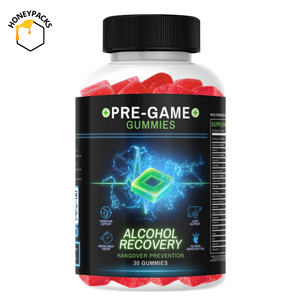Is Bladderwrack Good For Kidneys? Benefits And Risks Explained
Bladderwrack may support kidney health by reducing inflammation, facilitating detoxification, and promoting fluid balance. However, it also carries risks for individuals with thyroid issues or chronic kidney conditions.
Are you exploring bladderwrack for kidney support? More people are turning to natural remedies to avoid harsh medications, protect long-term health, and take control of their wellness routines. But when it comes to kidney health, the line between helpful and harmful can be razor thin.
Here’s the quick breakdown of what you’ll find below:
- Bladderwrack may help reduce kidney strain through its mild detox, anti-inflammatory, and diuretic properties.
- It contains iodine and essential minerals, which can support overall balance, but may be risky for people with thyroid or kidney conditions.
- It is not a cure or treatment for kidney disease, and has no clinical trials proving direct kidney benefits.
- Risks include medication interactions, heavy metal exposure, and hormone disruption in vulnerable individuals.
Honey Packs is a big believer in natural support, but only when it’s clean, transparent, and grounded in reality. That’s why bladderwrack is part of our broader performance stack, not as a kidney cure, but as one piece of a larger system that helps men feel sharp, strong, and in control, naturally.

Want the full breakdown? You’ll find it all below. Let’s get into the facts.
What Is Bladderwrack and Why Is It Trending?

Bladderwrack (Fucus vesiculosus) is a brown seaweed native to the rocky Atlantic and Pacific coasts. It’s been used for centuries in traditional medicine, but it’s recently surged in popularity thanks to its inclusion in detox supplements and sea moss blends marketed for everything from weight loss to hormonal balance.
What makes bladderwrack stand out is its dense mineral profile, including:
- Iodine, which supports thyroid health and metabolic regulation
- Magnesium, important for blood pressure and muscle relaxation
- Potassium, which helps balance fluid retention and kidney function
Its historical use includes support for the thyroid, urinary tract, and digestion. Today, you’ll find it in capsule form, powdered in smoothies, or paired with sea moss in daily detox routines.
This new wave of interest is rooted in the growing demand for clean, plant-based ways to support the body’s filtration systems, particularly the liver and kidneys.
How Bladderwrack May Support Kidney Function
While bladderwrack isn’t a proven treatment for kidney conditions, it does offer several properties that may indirectly support kidney health when used responsibly.
Mild Diuretic Action
Bladderwrack’s most immediate kidney-related benefit is its potential mild diuretic effect. By helping increase urination, it may assist in flushing excess fluid, sodium, and metabolic waste, lightening the load on your kidneys. Users often report feeling less bloated or flushed out, which may indicate improved fluid movement.
That said, it’s not a replacement for medically necessary diuretics and shouldn’t be used to self-treat fluid retention or kidney dysfunction.
Anti-Inflammatory Effects
Bladderwrack contains fucoxanthin and phlorotannins, two compounds with known antioxidant and anti-inflammatory properties. These may help reduce oxidative stress in kidney tissues, a key concern for those dealing with chronic inflammation or metabolic imbalance.
In simple terms, less inflammation means less wear and tear on your filtering systems.
Electrolyte and Hormone Balance
Proper kidney function relies heavily on a stable balance of electrolytes, especially potassium and magnesium. Bladderwrack naturally supplies both, which may help support fluid regulation, muscle function, and blood pressure control, all tied to kidney workload.
Additionally, the iodine content in bladderwrack supports thyroid function, which influences hormone levels that affect kidney health. When the endocrine system is stable, your kidneys operate with less stress. However, as we’ll explore later, iodine can be a double-edged sword.
Can Bladderwrack Help in Early-Stage Kidney Disease?

For those navigating early signs of kidney trouble, like fatigue, swelling, or mildly elevated creatinine, some turn to bladderwrack as a natural first step before exploring prescription medications.
Its gentle detox properties and trace minerals may:
- Help reduce uric acid levels, which could ease the burden of kidney stones or early gout symptoms
- Support fluid balance through its mild diuretic activity
- Calm inflammation, especially when combined with other herbs like burdock root
But there are no peer-reviewed human studies confirming bladderwrack improves kidney markers or reverses disease. Reports of lowered creatinine or improved urination are purely anecdotal, and the seaweed's impact varies depending on the individual’s condition, diet, and medication use.
So, can bladderwrack lower creatinine?
There’s no scientific consensus, only scattered reports and assumptions. It may help reduce strain in some cases, but it’s not a cure.
That’s why anyone considering bladderwrack for early-stage kidney concerns should consult a healthcare provider first, especially if they’re already taking medication or have underlying thyroid conditions.
Bladderwrack Risks for People With Kidney Issues
Bladderwrack might sound like a harmless herbal helper, but if you’re managing kidney concerns or taking prescription medications, it’s important to proceed with caution. Here’s what to watch out for:
Iodine Overload
Bladderwrack is rich in iodine, a nutrient that helps regulate thyroid hormones. But in high amounts, iodine can stress both the thyroid and kidneys, especially for people already dealing with imbalances.
If your kidneys are weak or your thyroid is overactive (or underactive), bladderwrack could make things worse. This is because iodine and thyroid hormones influence renal blood flow, sodium balance, and fluid retention, all crucial for kidney health.
Is bladderwrack safe for CKD (chronic kidney disease) patients?
Not without medical supervision. Iodine and potassium levels in bladderwrack can become problematic for those in Stage 3 CKD or beyond. Play it safe, check with your doctor.
Heavy Metal Contamination
Another concern is where the bladderwrack is sourced. Like other sea vegetables, bladderwrack absorbs minerals, and unfortunately, toxins, from its environment. If it’s harvested from polluted waters, it may contain heavy metals like arsenic, lead, or mercury.
Is it safe if it comes from clean sources?
Yes, but only if it’s third-party tested and certified heavy metal-free. Stick with brands that offer transparent sourcing and lab reports.
Are there clean, metal-free options available?
Absolutely, look for certified organic or wild-harvested bladderwrack from vetted regions like Iceland or the North Atlantic. These are typically the most trusted.
Medication Interference
Bladderwrack’s active compounds and mineral content can interfere with certain medications, especially those processed through the kidneys or affecting hormones.
It may:
- Alter thyroid hormone levels, impacting levothyroxine users
- Amplify effects of diuretics or blood pressure medications, potentially leading to imbalances
- Affect blood thinners due to its natural iodine and anticoagulant properties
Does it interfere with blood pressure meds?
Yes, potentially. Anyone taking medication, especially for heart, thyroid, or kidney function, should talk to their physician before adding bladderwrack to their routine.
What the Research Really Says About Bladderwrack and Kidneys
Despite the buzz, bladderwrack isn’t a miracle solution for kidney health. Here's what the research actually shows:
- There are no high-quality human studies confirming bladderwrack improves kidney function
- Most scientific focus has been on its effects on thyroid hormones, skin health, and anti-inflammatory action
- Benefits for digestion, immune health, or uric acid reduction are theoretical or anecdotal
- Bladderwrack is not a replacement for prescription medications, dialysis, or renal therapy
That doesn’t mean bladderwrack has no place in your wellness routine. But it does mean you should use it as a supportive tool, not a primary fix.
If you’re managing a serious condition or taking other supplements or medications, be honest with your provider, and choose a brand that’s transparent about what you’re putting in your body.
Should You Use Bladderwrack for Your Kidneys?
Bladderwrack can play a supportive role in kidney wellness, but only if you’re in good health and using a clean, properly dosed source.
For healthy individuals, bladderwrack may offer mild benefits like reducing inflammation, aiding fluid regulation, and supporting detox processes. But it’s not a magic bullet. And for those with pre-existing conditions, it can actually do more harm than good.
We recommend viewing bladderwrack as an indirect aid, not a primary solution. Think of it as a supplement that may ease systemic stress on the kidneys, not repair or treat actual dysfunction.
If you're dealing with complex meds, CKD, or thyroid issues, this isn’t the supplement to gamble with.
Better Ways to Support Your Kidneys Naturally
Bladderwrack may help some, but there are more proven ways to protect your kidney health, especially if you’re trying to avoid pharmaceuticals.
Here’s where to start:
- Stay hydrated: It’s the most overlooked but critical way to keep your kidneys functioning smoothly.
- Use verified herbs like nettle or dandelion root: These have mild diuretic properties and have been used safely under herbalist or medical supervision.
- Support circulation and hormone health: At Honey Packs, our daily supplement stack includes time-tested ingredients like black ginger, ginseng, and Butea Superba, which improve blood flow and reduce metabolic stress on the kidneys.
- Choose transparent supplements: Whether it’s bladderwrack or black ginger, you should always know what’s in your supplement, and why it’s there.
Our mission is about full-body vitality, so your kidneys, hormones, and heart are all working in sync.

Who Should Avoid Bladderwrack?
Even natural supplements have boundaries. If you fall into any of the categories below, it’s best to skip bladderwrack or talk to your doctor before considering it.
- Anyone with thyroid disorders, especially hypo- or hyperthyroidism
- Individuals with stage 3+ chronic kidney disease (CKD) or on dialysis
- Those taking diuretics, blood pressure meds, or thyroid medications
- Pregnant or breastfeeding individuals
There are safer, more controlled ways to support your health, without risking interactions or mineral overload.
How to Use It Safely (If You Choose To)
Still curious about adding bladderwrack to your regimen? Follow these safety guidelines:
- Choose lab-tested supplements: Look for bladderwrack sourced from clean waters, verified for heavy metals and iodine levels.
- Start small: Begin with a low dose (under 500mg daily) to assess tolerance.
- Stay hydrated: Herbs like bladderwrack work best when your body is well-hydrated.
- Monitor your labs: If you’re tracking creatinine, potassium, or thyroid levels, keep an eye on any changes once you start supplementation.
Above all, avoid the “more is better” mindset. Bladderwrack may help, but only in the right hands, at the right dose, for the right reasons.
Frequently Asked Questions About Bladderwrack For Kidney
Bladderwrack may seem like a catch-all remedy, but its use isn’t one-size-fits-all. Here are some of the most common and important questions we see:
I have one kidney. Can I use bladderwrack?
Risky. With reduced filtration capacity, your body may be more sensitive to mineral loads and herbal interactions. Get medical clearance first.
I’m on dialysis. Can I still take it?
No. Bladderwrack’s iodine and potassium content could be dangerous for dialysis patients and may interfere with treatment protocols.
How do I know it’s working?
Bladderwrack doesn’t deliver obvious effects like caffeine. Any changes, like reduced bloating or more frequent urination, are subtle and highly individual. Don’t expect a dramatic shift.
Can I take it every day?
Possibly, but only in low doses and for limited timeframes. Long-term daily use, especially in DIY sea moss blends, can result in mineral overload, thyroid disruption, or nutrient imbalances.
One of the biggest risks with bladderwrack isn't what’s in it, but what’s not clear. Many supplements list seaweed extract without specifying dose, purity, or iodine content. This kind of under-regulation makes it tough to use safely without guidance.








